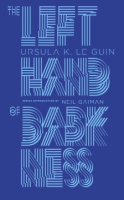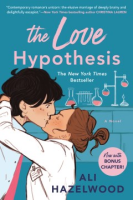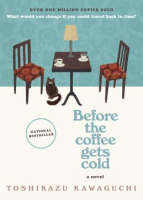Teen Book Reviews: February 2024 Page 3

The Singer's Gun by Emily St. John Mandel
Review by Anonymous
The author Emily St. John Mandel gives a perfect example of what happens when you choose to create with freedom rather than confinement, having released six novels that delve into the motive behind each and every meticulously placed event, and doing so regardless of the nature of the action being significant or insubstantial. All this to say, the primary novel of hers that directly revolves around crime and its tolls holds a context exempt from her other works, being one of the rare books wherein the writing has been matched to the plot due more to inevitability rather than deliberation. The Singer’s Gun tells the story of finding yourself by losing yourself, unpicking your soul and eagerly attempting to reconfigure it in an image you can understand, or at least control. Anton Waker, the protagonist, was born into being swallowed by a life outside the law, but within proximity to normalcy, exposed to illegal acts of his loved ones that had him endlessly reevaluating what he really knew to be true, to be him. As twists and turns of the chapters connect a multitude of young ambition reconfigured in desperately hopeful, though inherently little, rebellions, relationships are formed and destroyed, illusions clung to and shattered. With its devastating portrayal of moral unsurety, this story brings sympathy to the heart of those who find themselves in stasis after questioning what is right. The profound understanding of the human psyche that Mandel has creates an unbreakable bond between the reader, the characters, and the author herself.

The Left Hand of Darkness by Ursula K. Le Guin
Review by AN
"To be honest, this is one of the classic novels that I found challenging to read that I have to read for the 3rd time to actually have a knowledge of its messages. It definitely reads like an old sci-fi novel. I found the language to be ambiguous, and not very absorbable indeed! The characters' name is something that I didn't expect to be reviewed for, but yes, those names hardly seemed friendly nor common to me. Flamboyant and phenomenal, to be exact. Nonetheless, this book indubitably deserves a big star for world building. Our society constantly thinks ""sex"" defines everything from interest to relationships which is utterly not true. And sex is an awkward matter in various terms. However Le Guin made the topic engaging by introducing a whole new level of awkwardness in those ambisexual humanoid aliens. Thus there are advantages of ambisexuality. Sexual equality is a matter, obviously. Far from that, I also perceived a feminist advocacy—although feminine qualities are rarely mentioned—considerably an anti-prejudice assertion. This novel approaches more than the mere issue of gender; it's almost zen-like. Its concept involved light and darkness—like the Taoist dualism between Yin and Yang. In this aspect, I should advocate how Le Guin created the evocation of this need to discover ourselves, and thus, our world, which drives the speculative. There is more about this ""society"" that she penned about, that includes political and religious layers. It is a great deal that she employs fantasy as a vehicle to explore social and psychological themes, and to state observations about our culture as metaphor. This is a visionary story, and has a chunk of complicated beautiful qualities that I can't recommend enough!"

The Love Hypothesis by Ali Hazelwood
Review by AN
It has a simple style of writing which I can easily stay focused on, also, although the book is about 400 pages, the simplicity makes this slow flow in a steady way. Actually, it's quite entertaining seeing those little hypothesis intros at the start of every chapter. The chapters tend to be short, around 1 page and a half. Not only giving readers a delightful romantic experience but also highlighting women in STEM, and the prejudices they still face. Some warning content include sexual, mild suicidal ideation, alcohol, anxiety, cancer. Olive and Adam are totally opposite attractions. One's personality is as sunny and the other is grumpy, which is hilariously fake yet adorable later on. Olive wants to get her best friend trust about love at first sight—and possibly because of her quirky personality too—and so she ended up matched up with grumpy professor, Adam, for a fake date. The professor is very committed with his job and he's serious in many aspects. And as a straightforward person, he doesn't tend to hold back except when it comes to his feelings with Olive, like how he helped her, protected her without ever interfering in her work. The scenes were sometimes awkward, imperfect, and full of consent and conversation, making it refreshingly real. The book is meant for young adults, and I see how its elements created the plot lines, such as how the characters respond in mature ways to each other. It has the perfect balance between rom-com and real-life commentary about women in academia. As for the trope, this can fall into "enemies-to-loves" one.

Before the Coffee Gets Cold by Toshikazu Kawaguchi
Review by AN
Such an incredibly unique creation, especially on such an overused idea like time traveling, absolutely tragic but also incredibly happy and dealing with some tough subjects almost everyone can empathize with. It takes place in a retro cafe, and there are 4 different stories interwoven together with characters who have their individual existence yet perfectly complement each other. When you walk in this cafe, unchanged for decades, you can order a cup of coffee that will take you into the past. You can't leave the cafe while you're time traveling, and you can only stay in the past for as long as it takes for your coffee to go cold. Nice concept, isn't it? What makes this amusing to read is that the characters were described in a way that urged me to feel involved in each visit to the past. To be honest, it was a bit disjointed at first, for some reasons, but the paragraphs happened to do that. And as for repetitive, the book is in many ways really just 4 short stories that are essentially variations of the same set up. So, it is predictable. That being said, my only complaint is that it lacked depth because although the stories seem to complement each other, their conclusions ended in a similar way for all characters. The characters visit the cafe are all women: a woman who chose her career over her long-time boyfriend; a woman whose husband is diagnosed with Alzheimer; a woman whose estranged sister dies in a tragic accident; a woman who is carrying her unborn child. They are similar in terms of tone, struggle and the hardships they face.

